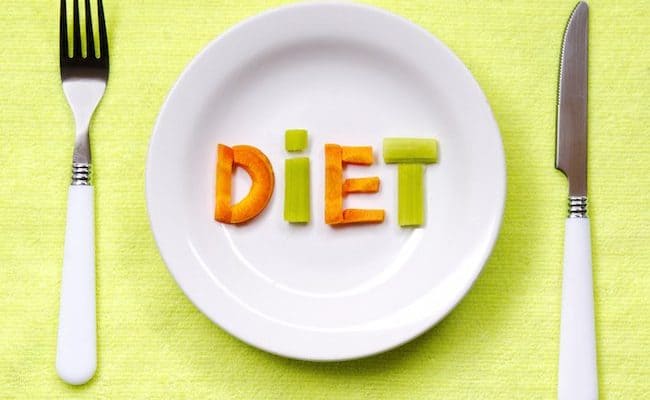
Metabolism declines as we age and may start as early as the 20’s, but the rate of decline starts small with only 1-2% decline each decade.
Around the 40’s to 50’s the rate of metabolism decline can increase more dramatically
Increasing your metabolism can be an attractive buzz phrase associated with weight loss. In reality, your body’s metabolism is basically the sum of all the body processes in the body and the energy needed for them.
Your basal metabolism rate (BMR) is considered the energy needed to support life which includes: heart beating, diaphragm working, brain function and any other energy needed to support life.
It does not include energy needed for food digestion or muscle movement. The BMR is considered to be about 60-75% of total energy needs.
Other things that account for energy needs of the body include digestion, absorption, movement and unplanned movement like fidgeting.
Increasing planned exercise can increase calories burn but still does not exceed BMR energy needs for most people.
The metabolic rate for each person is unique. It is impacted by sex, age, body size, activity level and genetic factors.
As body size goes down, like in weight loss, BMR slows. As we age metabolism slows down.
Children and young adults have the highest metabolic rate throughout the life span. As you age into adulthood, the body’s need for energy goes down.
However, there are some things you can do to counteract the slow of metabolism as you age.
How soon does metabolism start to slow with age?
The bad news is it can start as early as your 20’s. However, the good news is the decline in metabolism at this age is only about 1-2% per decade (1).
There is some individual variance, but around age 50 in women and 40 in men, the decline in metabolism can be accelerated more than 1-2% per decade.
Age is one of the most important factors for energy metabolism (2). As age increases, it is one of the main factors for why metabolism slows.
How much does metabolism slow with age?
Why is there a decline in metabolism as we age?
As we grow into adulthood, the body is not growing as many new cells. Energy demands are slowed.
Another major factor for the decline in metabolism as we age is because muscle mass can decrease at a rate between 3-5% of muscle mass for each decade after 30.
In elderly years, muscle mass may decrease at a higher rate. As muscle mass decreases, metabolism can lower.
Therefore, the decline in metabolism and muscle mass is somewhat related and dependent on each other.
See also: Top 10 Foods for Building Muscle
How to counteract slowing of metabolism with age?
Exercise
There are things you can do to minimize the slowing of your metabolism throughout the adult years.
Because muscle mass is related to metabolism, if you make an effort to maintain or increase muscle mass as you age, you can minimize the slowing of your metabolism as you age.
How can you maintain or limit muscle loss?
One of the biggest effects on maintaining muscle mass is exercise. Maintaining your activity level as you age not only can maintain your muscle mass, but it can also keep your metabolic rate higher throughout aging.
Simply making sure you continue to exercise throughout adulthood is a major way to counteract slow down of metabolism.
Approximately ¼ of Americans between 50-65 years old do not get any exercise outside of moving around at work.
Approximately 1/3 of American adults over 75 do not get adequate exercise
A study (3) from 1997 analyzed the effect exercise has on age related decline in metabolism. Researchers studied women who were aged between 21-35 years old and 50-72 years old.
Researchers found the age related decline in BMR associated with sedentary adults was not observed in women who regularly exercised.
Protein intake and muscle mass through aging
As we age in adulthood, muscle breakdown rate can increase as muscle synthesis rates go down.
Research (4) suggests spreading protein intake throughout the day can help with increasing muscle protein synthesis in the elderly.
Therefore, combining exercise with spreading out protein intake throughout the day can help negate some of the loss in metabolism with aging.
You don’t need to eat an enormous steak at every meal to get the benefits of protein intake on metabolism.
Getting about 20-30 grams of protein at each meal may be helpful in counteracting muscle break down rate through aging.
Sleep and metabolism
Besides maintaining muscle mass through diet and exercise, your metabolism rate through aging can also be affected from the amount of sleep you get at night.
A 2011 study (5) concluded that even one night of sleep deprivation can reduce energy expenditure the next day.
Researchers concluded sleep contributes to the regulation of energy expenditure. Therefore, one way of impacting metabolism as you age is getting adequate sleep.
Some research also suggests poor sleep can impact muscle loss. This may be another reason why not getting enough sleep could impact metabolic rate especially if not getting enough sleep is a chronic problem.
Conclusion: metabolism and aging
When we are younger, the body’s energy demands are high because the body is growing and there is high rate of cell renewal.
As we age into adulthood, cell renewal and growth diminishes. BMR declines as we age and may start as early as the 20’s, but the rate of decline starts small with only 1-2% decline each decade.
Around the 40’s to 50’s the rate of BMR decline can increase more dramatically.
While the slow in metabolism is natural as we age, you may be able to counteract this decline somewhat.
Along with decline in metabolism, muscle mass goes down as we age. By maintaining muscle mass throughout aging, you can blunt the slowdown of metabolism decline.
Maintaining muscle mass can be done by exercising throughout adulthood and spreading out protein intake throughout the day.
Getting adequate sleep at night may also influence metabolic rate. Some studies have shown even one night of inadequate rest can influence energy expenditure the next day.










